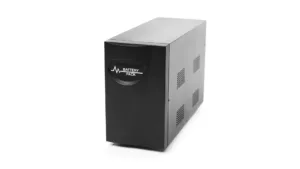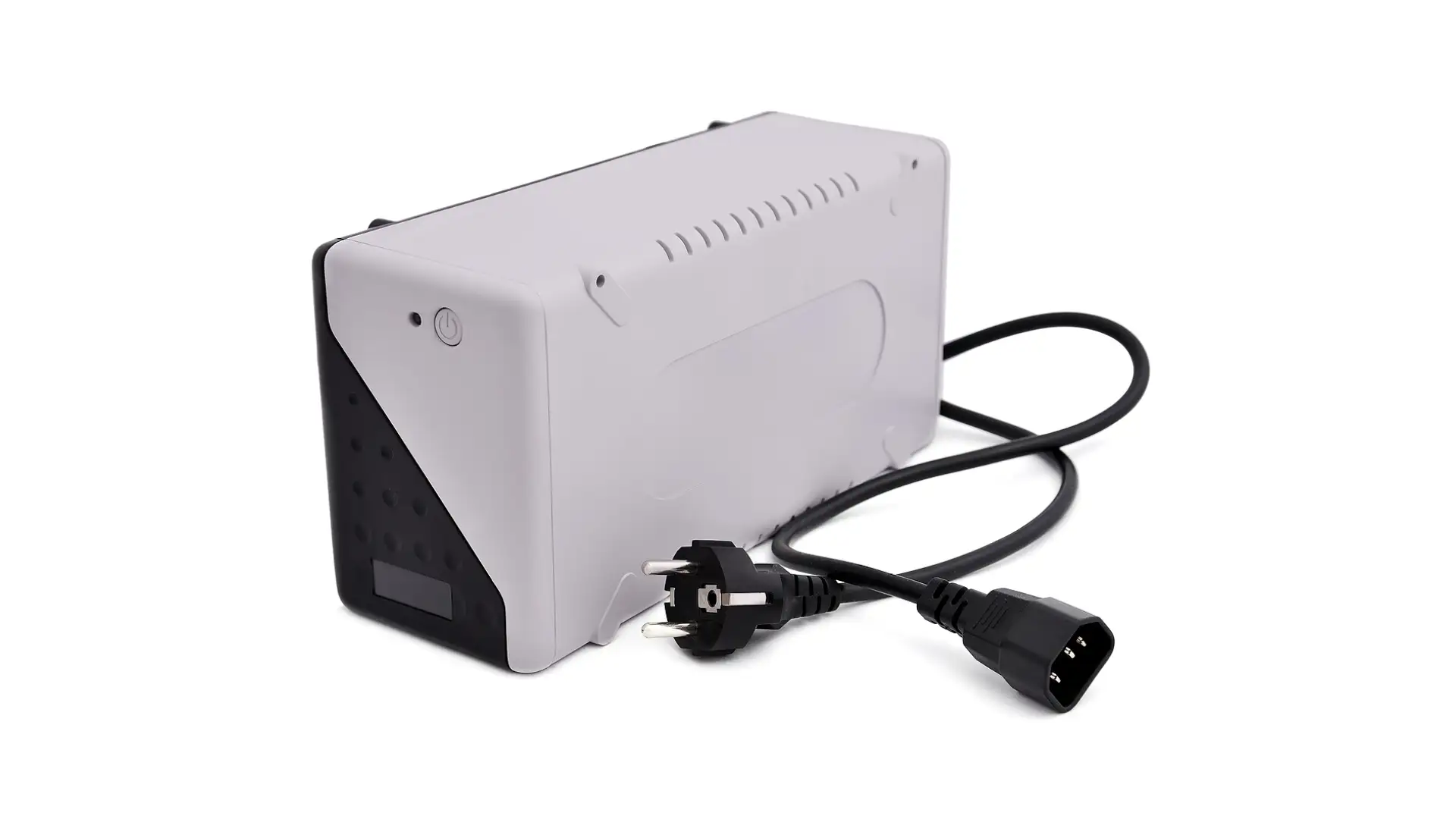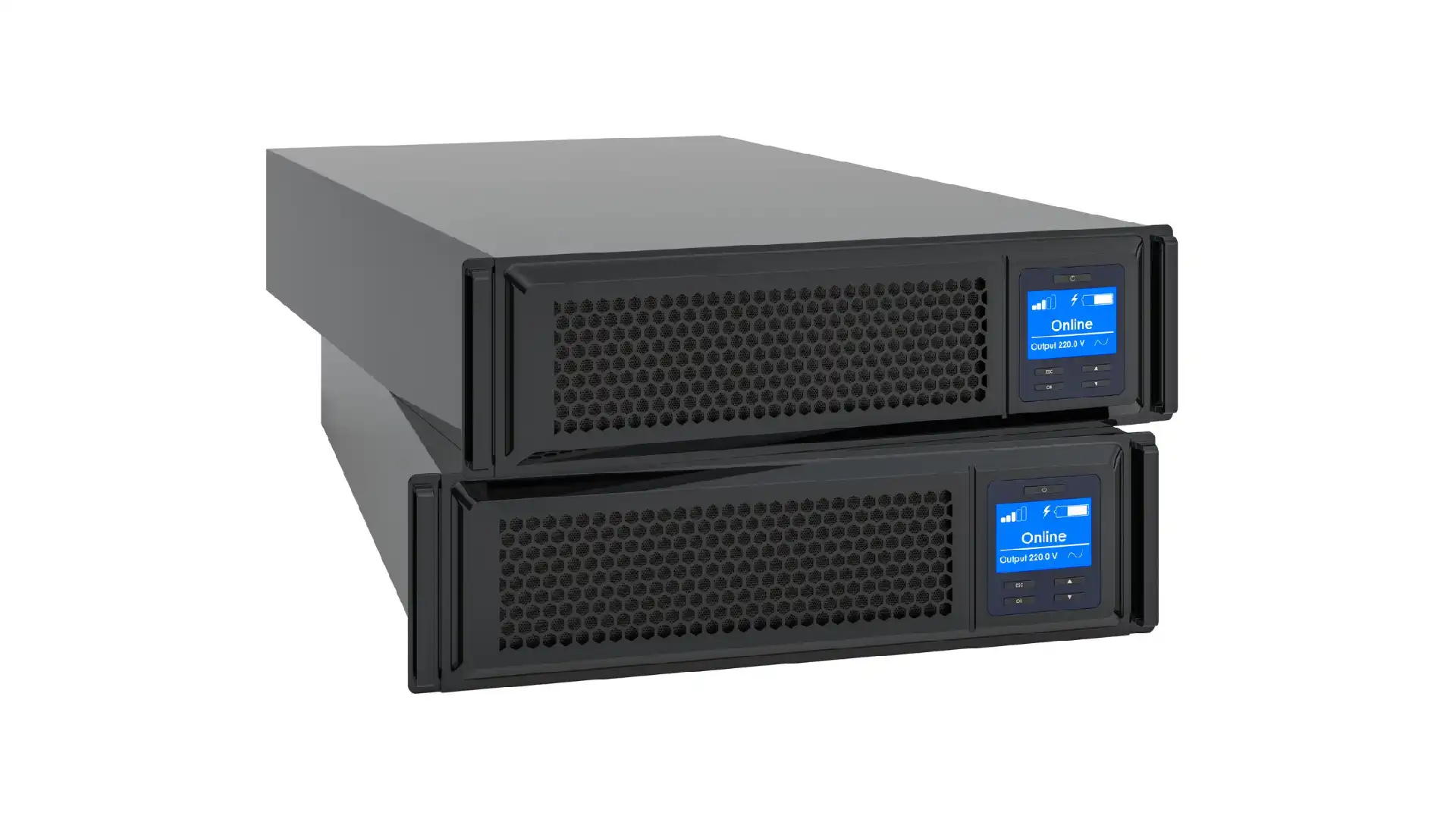
Uninterruptible Power Supply: Best UPS for Small Business
In today's digital age, small businesses heavily rely on technology for their daily operations. From managing customer data to conducting online transactions, a power outage can disrupt essential processes and result in significant losses.
This is where an Uninterruptible Power Supply (UPS) comes into play. In this comprehensive guide, we will explore the world of UPS systems and help you choose the best uninterruptible power supply for your small business.
Understanding the Importance of a UPS
An Uninterruptible Power Supply (UPS) is a critical tool that protects electronic devices from damage due to power outages, surges, and fluctuations.
It provides a continuous power supply to essential devices during a power failure, allowing users to save work, shut down systems safely, or maintain operations without interruption, thus ensuring continuity and reliability in our digital activities.
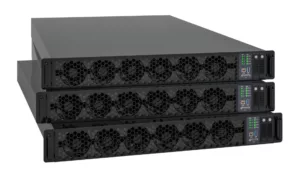
Types of UPS Systems
Small businesses have diverse needs, and UPS systems come in various types, each with its own set of features and advantages. Understanding these types is crucial for making an informed decision.
Standby (Offline) UPS
- Perfect for the Basics: Commonly used in home offices and small businesses, the standby UPS switches to battery power only when the main power source fails.
- Basic Protection: Offers basic protection against power outages and surges, making it cost-effective.
- Quick Transition: However, it may result in a brief interruption during switchover.
Line-Interactive UPS
- Enhanced Protection: Line-interactive UPS systems provide enhanced protection by actively regulating voltage fluctuations.
- Ideal for Sensitive Equipment: They are ideal for small businesses with sensitive equipment, offering a balance between cost and performance.
Online (Double-Conversion) UPS
- Ultimate Protection: Online UPS systems offer the highest level of protection, constantly converting AC power to DC and back to AC, ensuring a clean and stable power supply.
- Zero Downtime: Suitable for businesses with critical applications that cannot tolerate any downtime.
- Investment in Reliability: They offer the best protection but come at a higher cost, which can be considered an investment in reliability.
Top Picks for Uninterruptible Power Supplies
After delving into the critical considerations necessary for choosing an Uninterruptible Power Supply (UPS), we now present an expanded guide on the top recommendations for UPS systems specifically tailored for small businesses.
Our selections are grounded in a comprehensive evaluation of their performance, reliability, customer feedback, and additional features that make them stand out in the market:

APC Back-UPS Pro Series
- Diverse Range of Models: The APC Back-UPS Pro Series stands out for its wide assortment of models, catering to a range of power needs and ensuring that businesses can find a perfect match for their specific requirements.
- Dependable Battery Backup and Surge Protection: This series is renowned for its consistent performance in providing reliable battery backup and surge protection, safeguarding critical equipment and data during power outages and fluctuations.
- Energy-Saving Capabilities: With an emphasis on sustainability, the APC Back-UPS Pro series incorporates power-saving features that significantly reduce energy consumption without compromising protection.
- Exclusive PowerChute Management Software: APC enhances the user experience by including its proprietary PowerChute software, which simplifies monitoring and management of the UPS, offering an intuitive interface for easy operation.
CyberPower Smart App Online UPS
- Optimized for High Uptime: Designed for businesses that cannot afford downtime, the CyberPower Smart App Online UPS is the go-to choice for ensuring high availability of critical systems.
- Uninterrupted Power Supply with Clean Output: Its double-conversion architecture guarantees that equipment receives continuous, clean power, protecting against a wide range of power disturbances.
- Expandable Battery Modules: This UPS offers scalability through optional external battery packs, allowing businesses to easily extend runtime according to their growing needs.
- Intuitive LCD Control Panel: The inclusion of a user-friendly LCD panel streamlines the configuration and management of the UPS, making it accessible for users to monitor and adjust settings effortlessly.
Eaton 5P Series
- Cutting-edge Technology and Reliability: The Eaton 5P Series is distinguished by its advanced technological features and consistent reliability, making it a solid choice for businesses seeking robust power protection.
- Superior Power Anomaly Protection: Offering exceptional defense against a spectrum of power anomalies, this series ensures that connected equipment remains safe and operational.
- Convenient Remote Monitoring: With capabilities for remote management, the Eaton 5P Series enables real-time monitoring and control, facilitating proactive management of power conditions from anywhere.
- Innovative Lithium-Ion Battery Option: For businesses looking for longevity and dependability, the Eaton 5P Series provides an option for a lithium-ion battery, which offers a longer lifespan and enhanced reliability compared to traditional battery technologies.

Battery Capacity and Runtime in UPS Systems
In the realm of Uninterruptible Power Supply (UPS) systems, understanding the nuances of battery capacity and runtime is essential for ensuring uninterrupted operation and protection of critical equipment during power outages.
The battery capacity of a UPS, measured in ampere-hours (Ah) or kilowatt-hours (kWh), is a pivotal indicator of the system's ability to store electrical energy.
The runtime of a UPS, often expressed in minutes, signifies the length of time a UPS can continue to power connected devices after a power outage occurs.
To determine the optimal runtime for a specific setting, it's important to consider several factors:
- Frequency and Duration of Power Outages: Assess the historical power reliability in your area. Areas prone to frequent or prolonged outages require UPS systems with longer runtimes to ensure continuity of operations.
- Criticality of Connected Loads: Evaluate the importance of the devices connected to the UPS. Systems supporting critical infrastructure, such as servers and medical equipment, may necessitate longer runtimes to allow for graceful shutdowns or to ensure continuous operation until backup generators can take over.
- Transition Time to Alternative Power Sources: For environments equipped with generators or other backup power solutions, consider the time needed to switch from utility power to these alternative sources. The UPS should provide enough runtime to bridge this transition seamlessly.
- Scalability and Future Needs: Consider not only current power requirements but also potential future expansions. A UPS system that offers scalability in terms of battery capacity can adapt to growing power needs, thereby ensuring a longer lifespan and greater return on investment.
- Energy Efficiency and Environmental Conditions: The efficiency of a UPS and the operating environment can affect runtime. Higher efficiency UPS systems waste less power as heat, potentially extending battery life and runtime. Additionally, batteries can perform differently under varying environmental conditions, such as temperature and humidity, which should be taken into account when planning for UPS deployment.
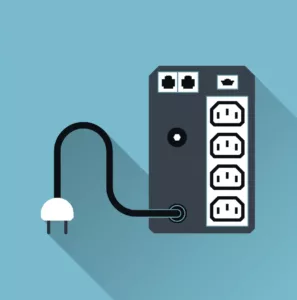
Scalability and Expandability
Efficiency and Energy Savings
Efficiency and energy savings are essential considerations, not only for environmental reasons but also for cost-effectiveness. Look for UPS systems with high efficiency ratings, typically measured as a percentage.
The higher the efficiency, the less energy is wasted as heat, resulting in cost savings over time. Choosing an energy-efficient UPS can positively impact both your bottom line and your environmental footprint.
UPS Management Software: Your Control Center
In the world of Uninterruptible Power Supplies (UPS), staying in control is paramount, and modern UPS systems have embraced technology to make this easier than ever before. The integration of UPS management software has become a game-changer, providing a comprehensive control center for monitoring, alerts, remote management, and scheduled tests. Here's a closer look at these capabilities:
Monitor UPS Status in Real-Time
Imagine having a digital dashboard that provides you with real-time insights into the health and status of your UPS system. With UPS management software, you gain access to a wealth of critical information about your UPS unit. This includes:
- Battery Status: You can check the current state of your UPS batteries, ensuring they are operating optimally. This information is vital to prevent unexpected battery failures during power outages.
- Input and Output Voltage: Keep an eye on the incoming and outgoing voltage levels. Any fluctuations or anomalies can be detected and addressed promptly, safeguarding your equipment.
- Load Levels: Monitor the load on your UPS to ensure it's not operating beyond its capacity. This data helps prevent overloading, which can damage the UPS and connected devices.
- Runtime: Track how much runtime your UPS has left during a power outage. This information allows you to plan and prioritize tasks, ensuring critical operations can continue without interruption.
- Event Logs: Access detailed event logs that record every significant event related to your UPS. This historical data can be invaluable for diagnosing issues and troubleshooting.
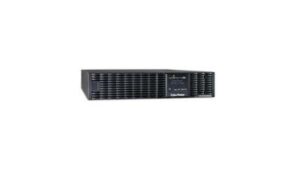
Receive Alerts and Notifications
In the fast-paced business world, every second counts. UPS management software ensures you stay informed even when you're not in the office. Here's how it works:
- Email Alerts: Configure the software to send email alerts directly to your inbox. Receive instant notifications about power events, battery status changes, or UPS failures.
- Text Message Alerts: For those situations where email might not be enough, some UPS management software also supports text message alerts. These SMS alerts ensure that you are notified promptly, even if you are on the go.
- Phone App Notifications: Some UPS management apps offer smartphone notifications, allowing you to monitor your UPS from anywhere with internet connectivity. This added flexibility can be a lifesaver during critical moments.
Remote Shutdown: Preserve Battery Power for Critical Devices
During prolonged power outages, preserving battery power is essential to keep critical devices running as long as possible. UPS management software gives you the ability to remotely shut down non-essential equipment connected to your UPS. Here's how this feature can benefit your small business:
- Prioritization: You can set up your UPS to prioritize certain devices over others. For example, you may want to ensure that your server remains powered while non-essential workstations are gracefully shut down.
- Battery Conservation: By shutting down non-essential equipment, you conserve the UPS battery's capacity for mission-critical devices. This can extend the runtime and give you more time to react to the power outage.
- Prevent Data Loss: Safely shutting down computers and servers prevents data loss and potential damage to your systems. This is especially crucial for businesses that deal with sensitive customer data or run critical applications.
Scheduled Tests: Ensure UPS Functionality
Regular maintenance is the key to a reliable UPS system. UPS management software allows you to schedule automated tests to ensure that your UPS is functioning correctly. These tests typically include:
- Battery Tests: Scheduled battery tests simulate power outages to evaluate the batteries' capacity and health. If any issues are detected, you can take proactive measures to replace failing batteries.
- Load Tests: Load tests assess how well your UPS handles its connected load. By periodically testing the UPS under load, you can identify any performance issues and address them promptly.
- Software Updates: Keep your UPS management software up to date with scheduled software updates. This ensures that you have the latest features and security patches.
Conclusion
In conclusion, choosing the best uninterruptible power supply for your small business is a critical decision that directly impacts the reliability and continuity of your operations. By understanding the types of UPS systems, assessing your power requirements, and considering factors like battery capacity, efficiency, and budget, you can make an informed choice. We've also provided some top picks to help you get started on your search.
Investing in a UPS is an investment in the stability and protection of your small business. Don't wait until the next power outage disrupts your operations; take proactive steps to safeguard your equipment and data. With the right UPS in place, you can focus on growing your business without worrying about power interruptions.
Source
continue reading
Related Posts
Uninterrupted Power Supply For Computer In today’s fast-paced and digitally […]
Uninterruptible Power Supply For TV In the digital age, our […]
Uninterruptable Power Supply Company In my daily life, both personally […]
